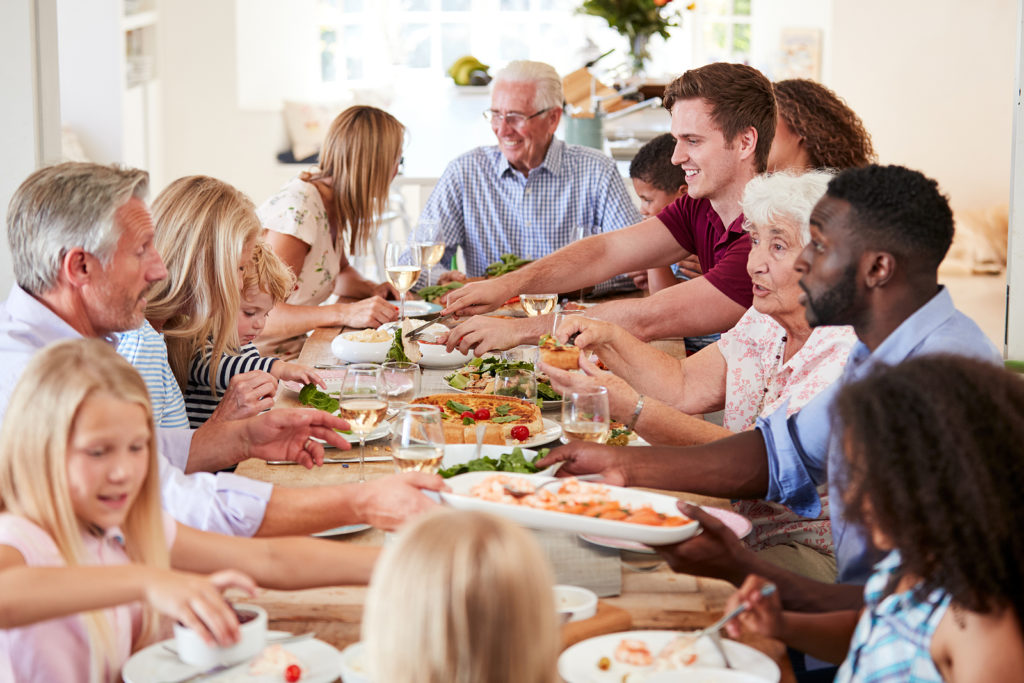Gratitude on Thanksgiving and Beyond

About a month before Thanksgiving popular magazines and newspapers feature scrumptious recipes, or articles about pre-planning to prevent feeling stuffed or spoiling your weight management or health goals. Children in school may learn about the history of Thanksgiving, but how often does the component of gratitude come up during this holiday season?
We tend to take much for granted, whether it is our health, our material possessions, our family remaining an integral part of our lives. etc. Only when we lose someone or something do most of us realize what a vacuum has been created.
Why bother to practice gratitude?
Practicing gratitude has been shown to be associated with positive outcomes. Research suggests that practicing gratitude is associated with increased happiness, improved health, resilience, and better relationships. Research by Robert Emmons, Ph.D. suggests that practicing gratitude decreases depression.
After a long draught it may seem natural to feel grateful for a heavy rain. But, what about acknowledging gratitude for the rain that helps crops grow and flowers bloom even when there isn’t a draught? The pandemic has taught many of us how important our health is, and how quickly one’s health status can change. It has also been a lesson in appreciating our essential workers who showed up to hospitals, ambulance services, businesses, the post office, to name just a few, even before a vaccine was available. Even though Covid-19 is not yet behind us, people are already taking things for granted, like the ability to return to air travel. Younger, healthier people may forget that their body is a miracle until a parent or grandparent has a stroke or other disorder, and they see that speech or mobility is not to be taken for granted.
 How to cultivate an appreciation for what we have?
How to cultivate an appreciation for what we have?
A gratitude journal is a common practice. Even though we are a sleep-deprived nation, devoting a few minutes most nights to jotting down one or two things for which you are grateful has been shown to improve sleep. It doesn’t have to be in a beautiful book, or with perfect grammar. It can be as simple as stating, “I am grateful that my old car made it to and from my appointment today.”
Another way to highlight your appreciation is to integrate gratitude with mindfulness. You can take a walk and “smell the roses” rather than letting the sights go by in a blur. Don’t wait for a spectacular sunset or a rainbow, look for a bird’s nest or some cute chipmunks or ducks along your path. While appreciating nature, you can reflect on people who have been kind to you, for example. When you return home, you may decide to write a thank you note to a friend or relative.
Don’t think you have time for the above suggestions? What about just remembering to say, “thank you,” with a smile, to someone who holds the door for you?
How parents can help children recognize the role of gratitude:
Starting to cultivate gratitude at a young age can have lifelong dividends. Parents can highlight what they are grateful for when a child or teen is disappointed about a loss in a team sport, or a friend who is moving away, for example. The parent can help “tip the scale” for the child, by highlighting how many friends they made by joining the team (even though they lost the game or trophy). Or, by expressing thankfulness for email or video chats to help stay in touch with the friend who is moving.
Shift the emphasis from an attitude of, “nothing goes right for me” to appreciation for the good parts. For example, if a beloved pet dies, a parent can be empathetic when the child is sad, but after a reasonable period of grieving the parent can place the accent on how many years of fun we had with ‘Rover” rather than on how quiet the house feels without him. Cherishing the positive memories, in contrast to dwelling on the loss, reinforces the role of appreciation in our lives.
Families, who hopefully share at least a weekly dinner together, can create a gratitude jar. During the week, family members slip a note into the jar that expresses appreciation for another family member. Some families assign a family member, so everyone has at least one note at the family dinner. Again, it doesn’t have to be a Herculean accomplishment. John can write that he appreciates his sister, Susan, grabbing his lunch when he was late for the bus on Monday. This is also an ideal way for parents to, “catch them being good,” rather than harping on what’s wrong.
I would be remiss if I didn’t mention the importance of connection when speaking of holidays. Connections with others help us to buffer the stress, loss, and pain in our lives. The old melody, “Over the river and through the woods to Grandmother’s house we go…” echoes the tradition many families have and the travel industry statistics support it. But, what if you don’t have a grandparent or are not close with your family? Rather than remain isolated on Thanksgiving (or other holidays) consider establishing a tradition with friends or neighbors. If that doesn’t work for you this year, what about volunteering at a soup kitchen where your presence would be most welcomed. Those who volunteer often feel they get more out of it than they give to others. You may end up saying, “I am grateful for the opportunity this volunteer position provided.”
Heightened awareness about gratitude can lead to small behavioral changes and eventually positive outcomes that are noticeable in one’s outlook, relationships, and health.
![]()

